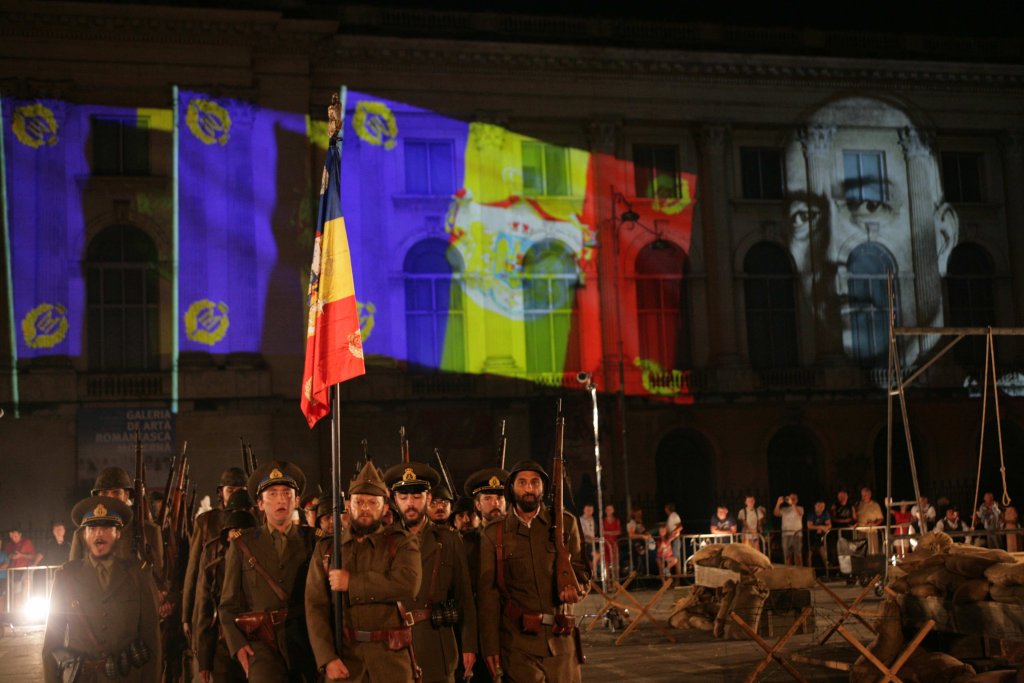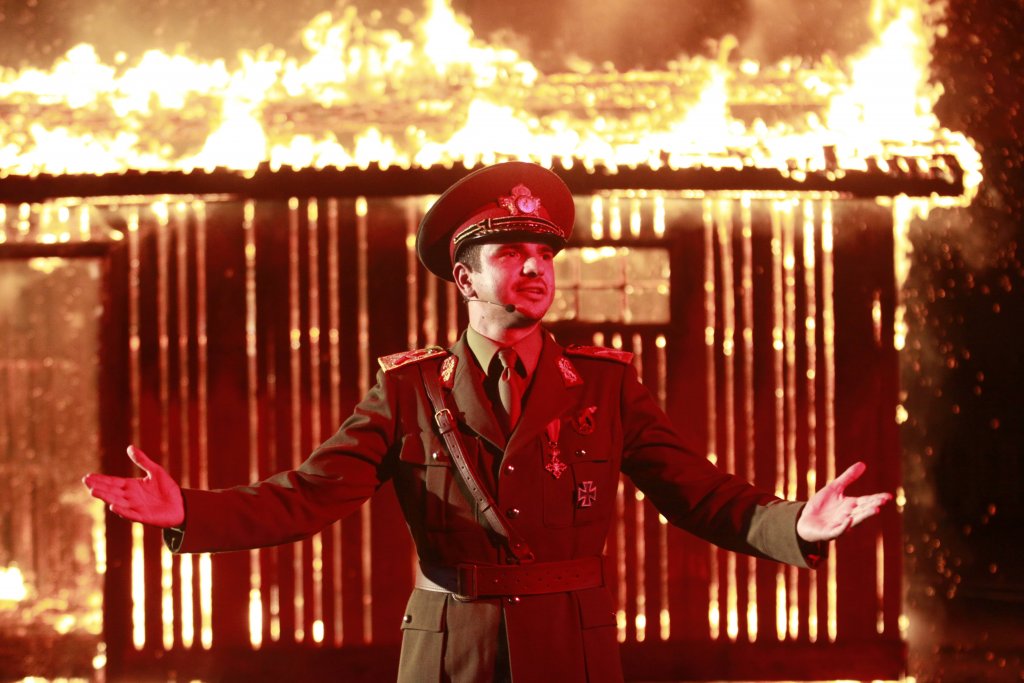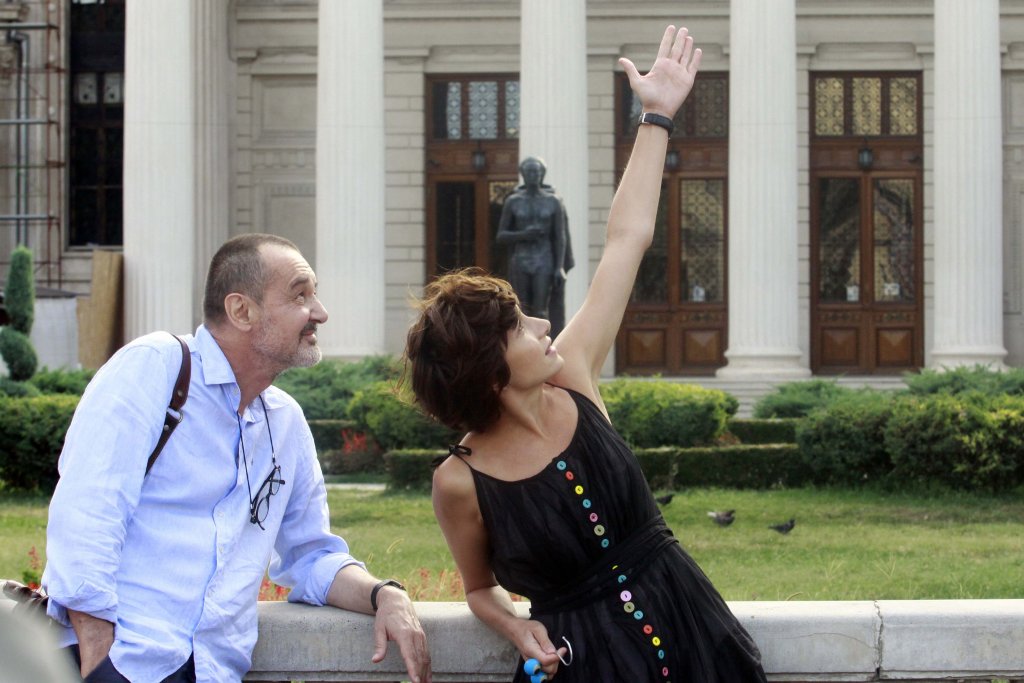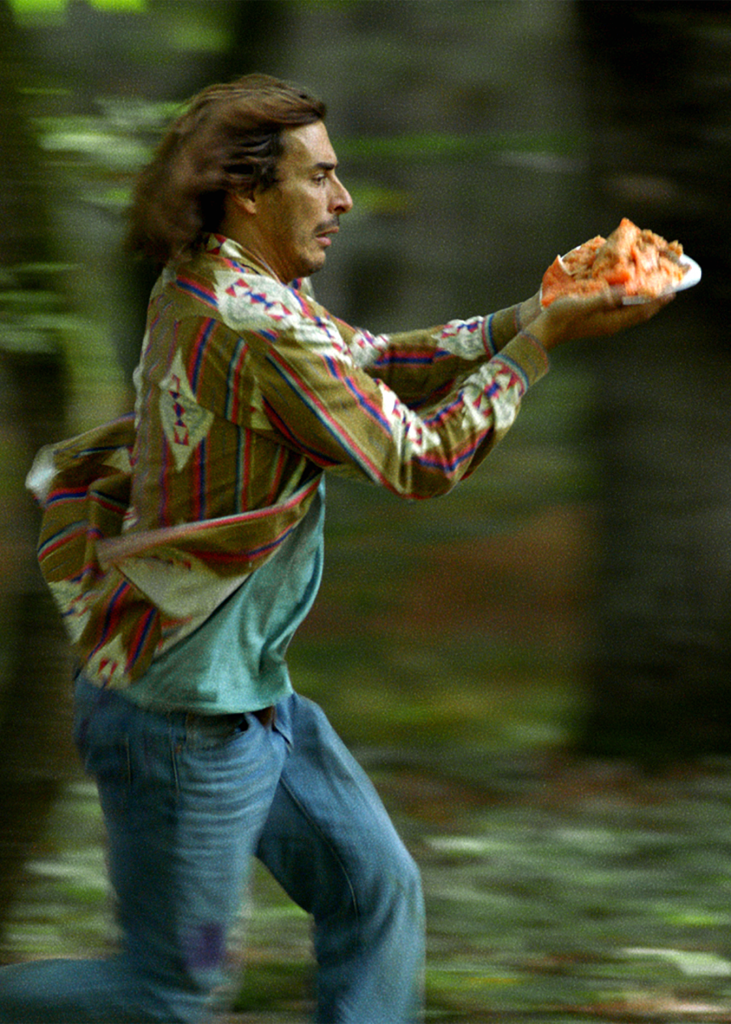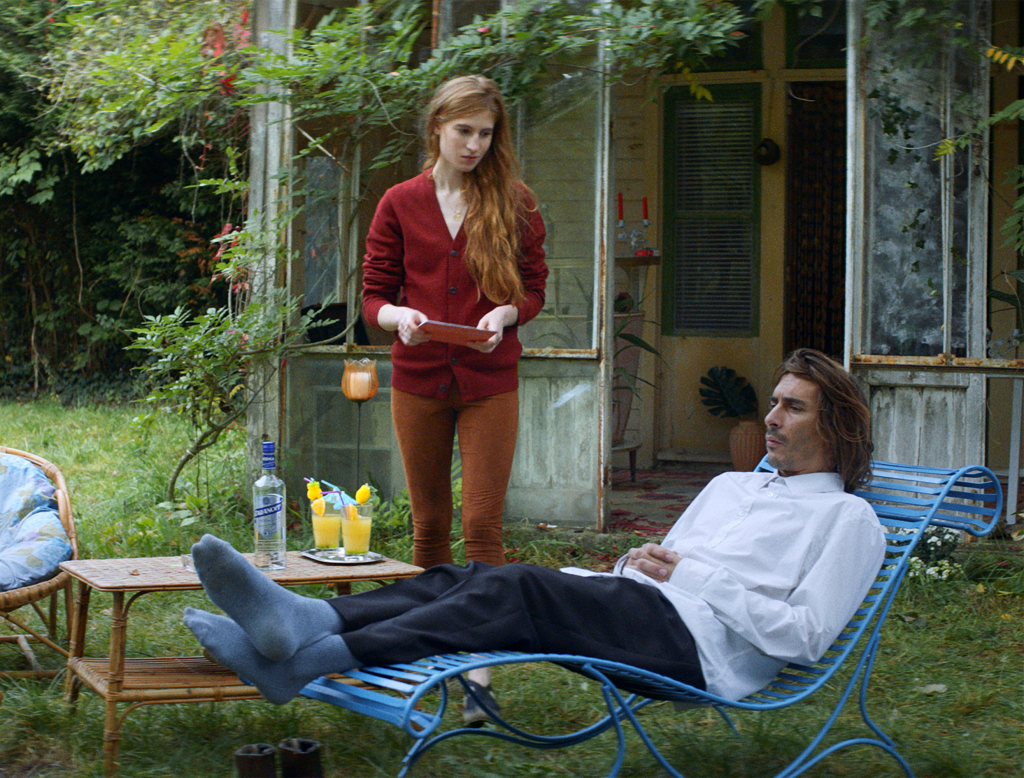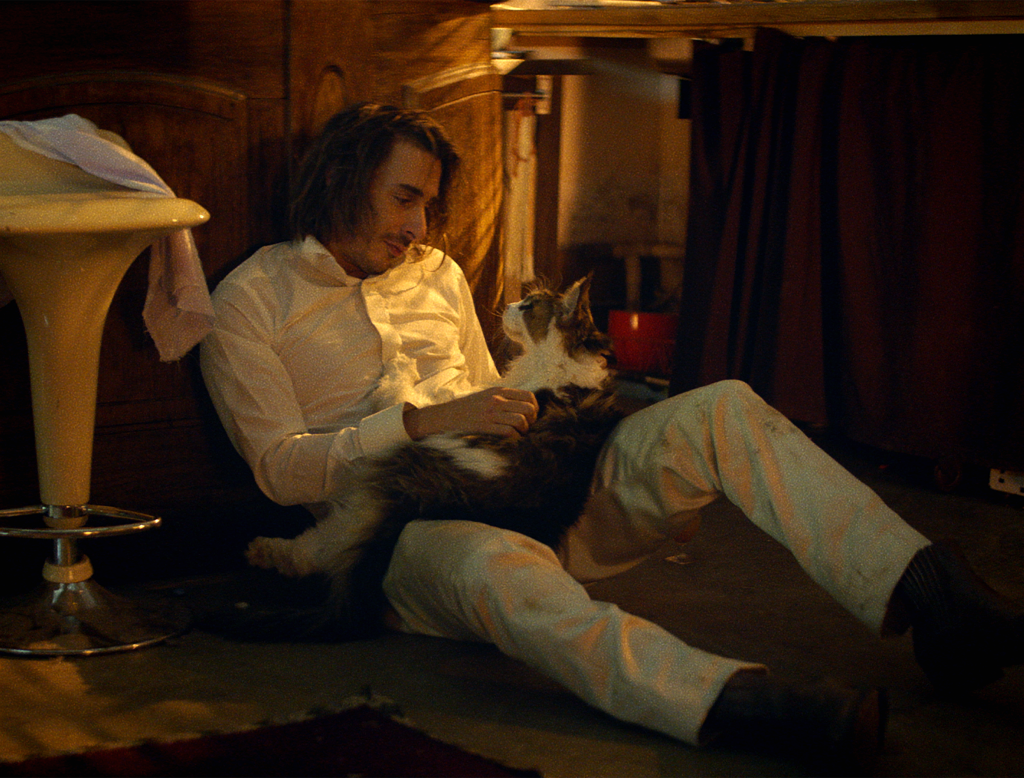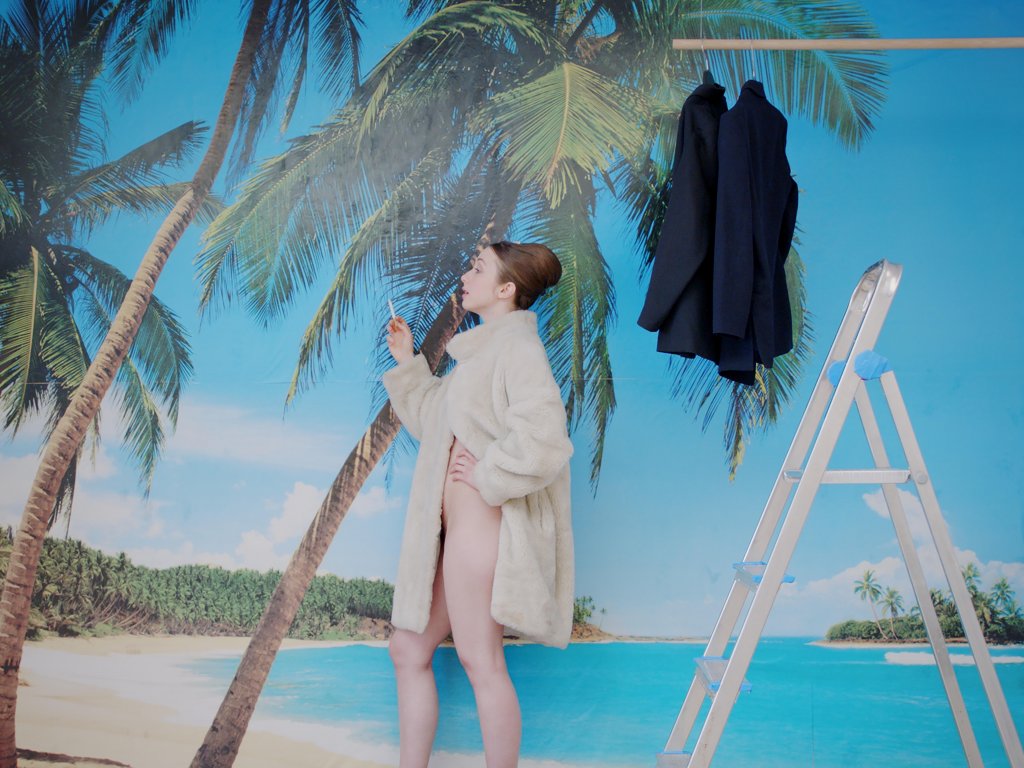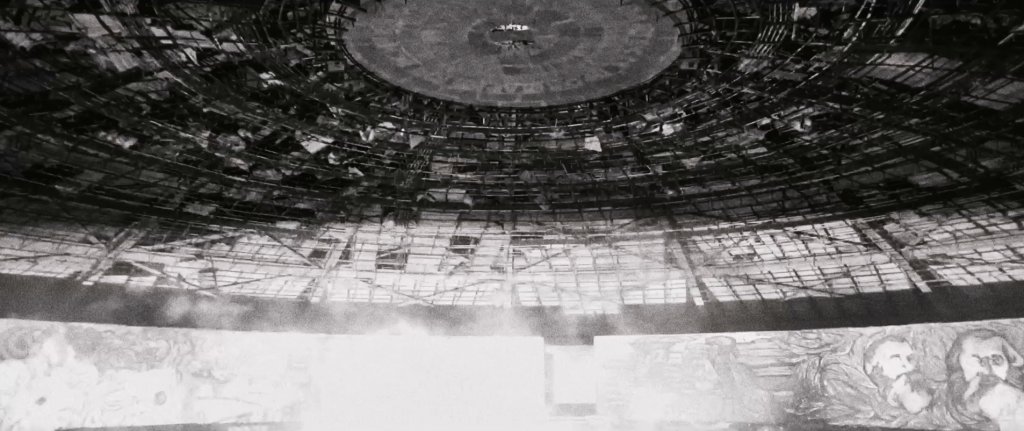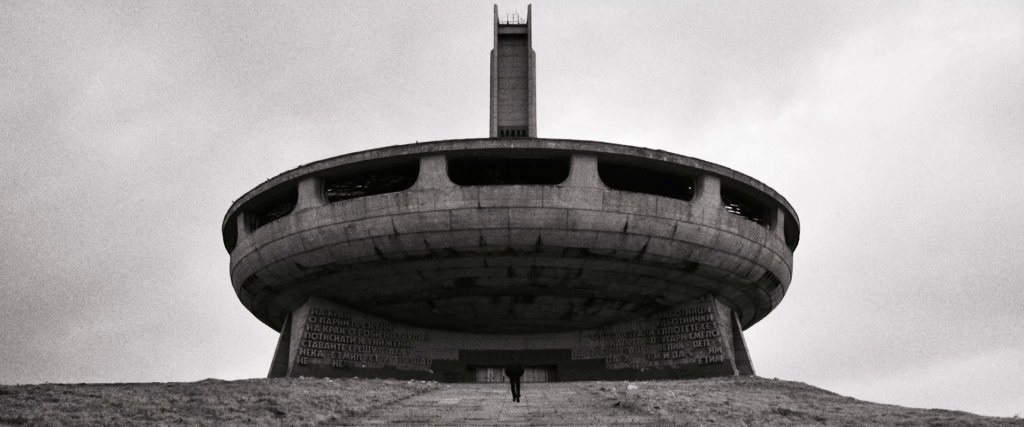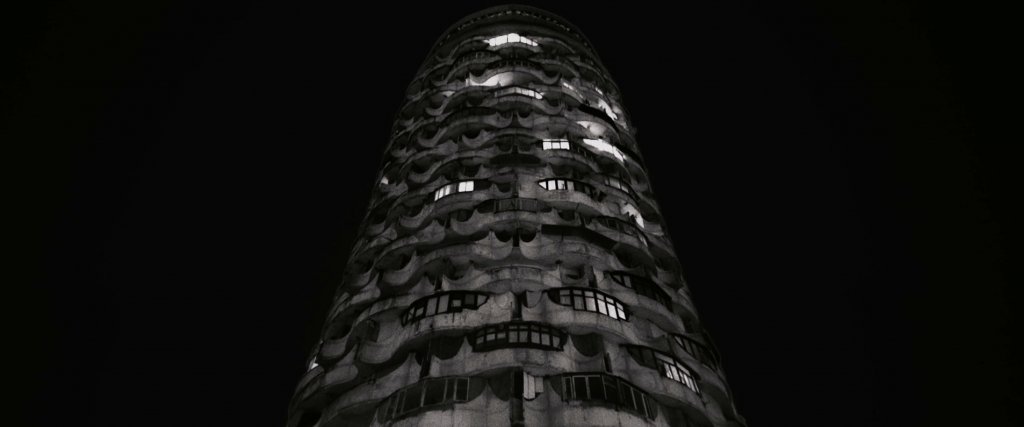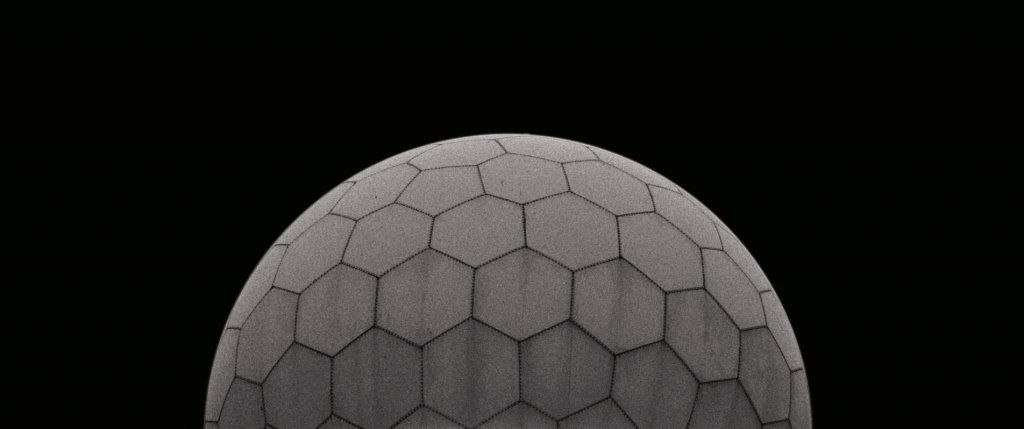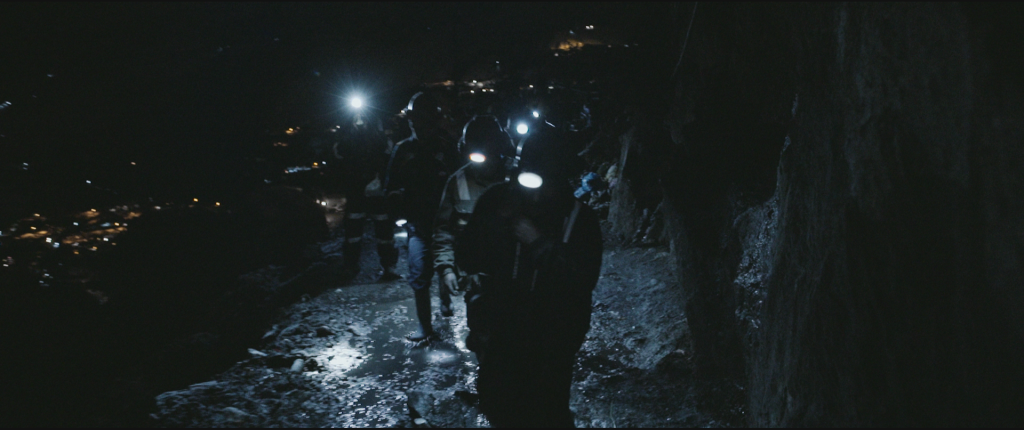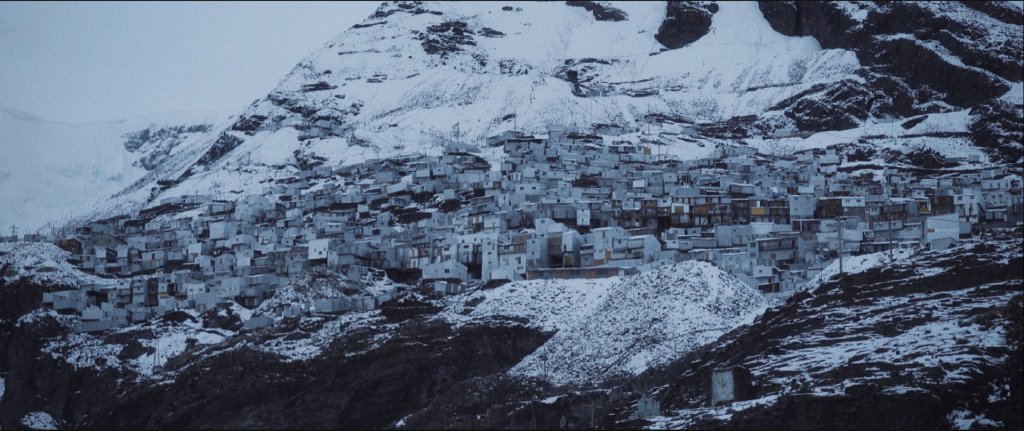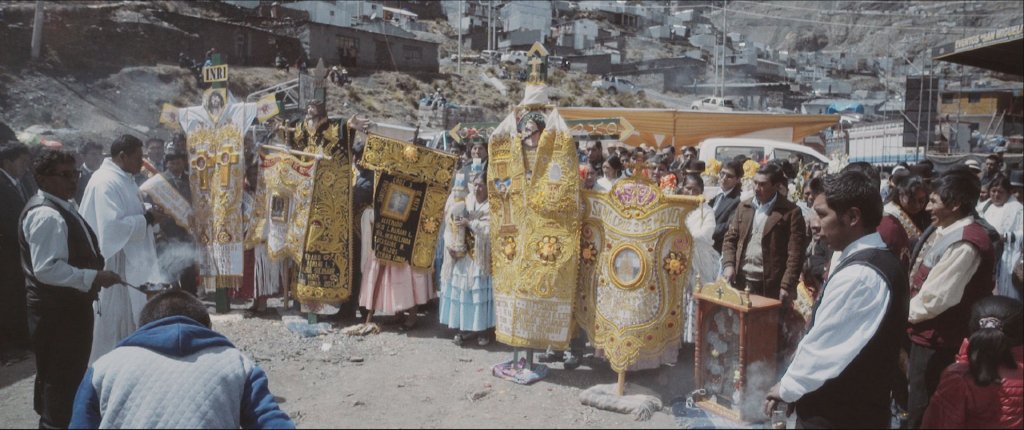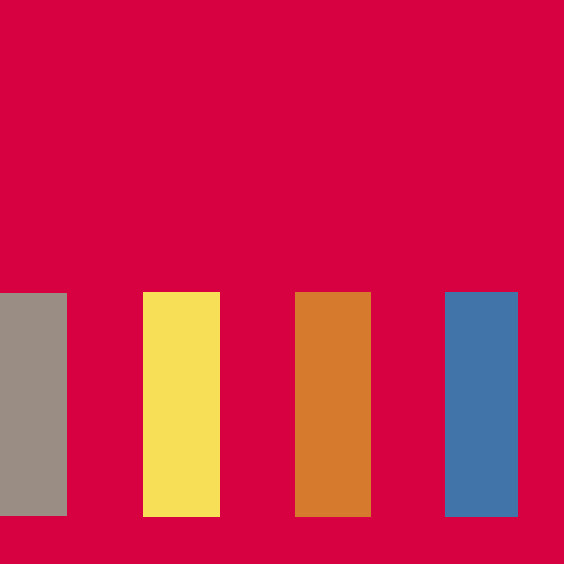RO/CZ/F/BG/GER 2018, D: Radu Jude, A: Ioana Iacob, Alex Bogdan, Alexandru Dabija, 139′, OV with English subtitles, DCP
The film’s title are words that have been uttered in the Romanian cabinet in 1941. Words that discoursively initialised the ethnic cleansings led by collaborative prime minister Ion Antonescu. Radu Jude’s film orbits around this sentence, comments on it, traces and alienates it. At the very beginning, actor Ioana Jacob steps into the frame, introduces herself as theatre directress Mariana Marin and slipts into her role. She plans a publicly arranged reenactment that is well-researched and that is to counteract a present, selective historical amnesia by addressing the Romanian involvement in the holocaust.
Emerging from that is not a simple, historic holocaust plot but a multilayered story located in the present time, that by using documentary aestehtics connects a past present with a present past in a metafictional manner. As artistic principles, Brecht and Godard shimmer at the horizon. The film faces its sensitive topic with a script full of wit, straightforward and elegant camera work, and a playful sense of irony without losing track of flawed humanities. “I DO NOT CARE IF WE GO DOWN IN HISTORY AS BARBARIANS” is full of dialectic moments and entertains to the point where it turns uncomfortable.
19 April, 10 pm – Schaubühne Lindenfels – € 6,5 (5,5 red.)
Trailer
FR 2018, R: Maxime Matray, Alexia Walther, A: Thomas Scimeca, Basile Meilleurat, Agathe Bonitzer, 101′, OV/English subtitles, DCP
As unknowingly as we are thrown into BLONDE ANIMALS, as confused protagonist Fabien stumbles through the story and his life. Abruptly, he wakes up in a forest. Picnickers return a borrowed screwdriver to him and invite him to a grill party. He accepts, steals their meticulously marinated salmon and flees into the thick woods, where the fish ends up in a hound’s belly. This charmingly odd opening sequence develops into an eccentric road movie, which is as unpredictable as the actions of protagonist Fabien. Fabien is a former sit com star whose short term memory only operates on alcohol. The film hardly cares about the question of what defines human existence if you subtract its memory. It takes Fabien’s restrictions – additionally to the weakness of memory comes a loss of gustatory taste – as a comical engine to push the plot forward. The storyline consists of sensual and absurdly witty episodes which are occasionally set on the boundaries of good taste. Fabien meets his steady companion Yoni who he often fails to remember. Yoni is said to have indirectly caused his boyfriends death. At least the family of the decapitated suggests that while his funeral is being prepared. Together, Fabien and Yoni try to reach the laid-out one…
20 April, 10pm – UT Connewitz – € 6,5 (5,5 red.)
Trailer
GER 2019, D: Susanne Heinrich, A: Marie Rathscheck , 80′, German version, DCP
A melancholic girl is drifting through existence. Looks for night-quarters. Encounters dreamers and guises. Gets involved. Gets undressed. And carries on. As an alien, artistic figure, every-woman. An open game. With the internalised visual memory and expectations of how a girl and woman should be. The projection surface becomes a space of negotiation. Body meets thesis meets thoroughly commercialised self-optimisation. In between performed answers and bored interaction, it flares up, it breaks open under all the make-up, hairstyle and lollipop aesthetics: womanhood, personhood, being allied with someone – in the presence of the individualisation machine.
Susanne Heinrich’s feature film debut is interested in the social and political dimensions of depression. An existential dare in the coat of a feminist manifesto: desire and meeting beyond stereotypes and marketing strategies. Putting oneself at risk is negotiated as long as it gets transformed: from an idealised, romanticised and banalised request to a possibility.
In the presence of Susanne Heinrich
20 April, 8 pm – Schaubühne Lindenfels – € 6,5 (5,5 red.)
Trailer
PT/GER 2018, D: Salomé Lamas, 80′, Doc, OV with English subtitles, DCP
Over the past years, post-Sowjet republics’ conflicts concerning nation state sovereignties have turned out to be saturated with violence and hardly possible to settle. EXTINCTION was developed during Russia’s annexation of Crimea. Originating from the de facto regime Transnistria, the film addresses the issues of those geopolitical situations and their immediate impacts on individual realms of experience and biographies, generating fluid national identities.
The film focuses on the character of young Kolya, who is wholeheartedly in solidarity with Transnistria which liberated itself from Moldava in the early 1990s. However, Transnistria officially does not exist officially and remains unacknowledged by the international community of states. By now, its inhabitants feel a great affinity towards Russia. In black and white images, the film follows Kolya to Soviet architecture, utopias turned into stone. They no longer recall societal progress but merely a passing of time. Encounters with Romanian, Ukrainian and Moldovan border guards create a surreal atmosphere, which is intensified by the soundtrack: unsettling avant-garde orchestral music alternates with gloomy drone sounds. To this, time and again words and thoughts that transcend all constructs of nation states.
21 April, 8 pm – Schaubühne Lindenfels – € 6,5 (5,5 red.)
Excerpt
PT/F 2016, D: Salomé Lamas, 125′, Doc, OV with English subtitles, DCP
It is neither a gold rush, nor the prospect of quick wealth, but the hope to alleviate misery is driving people to the mining site La Riconanda, the highest situated settlement in the world. At 5000 meters above sea level in the Peruvian Andes Mountains, workers graft with their modest tools under preindustrial production conditions. The ones above ground are exposed to adverse weather, the ones underground accompanied by the fear of being buried, should the pit cave in. Only the intoxication with coca keeps reality at bay.
Lamas translates the implacability of circumstances into a nearly one hour opening sequence, whose perspective is static but nonetheless streaked by a lot of movement. Similar to a hidden object picture, hundreds of unrecognisable mineros crest a mountain slope, surrounded by darkness, only lit by the glow oft their helmet lamps. The monotony of the maelstrom is attributed with accounts of workers, snippets, jingles and reports of accidents from the miner’s radio station.
This piece of rigorous documentary is followed by the expressive barrenness of images displaying sad attle heaps, unionists meeting in blowing snow and the village community finally meeting in a colourful and noisy celebration.
21 April 20, 10 pm – Schaubühne Lindenfels – € 6,5 (5,5 red.)
Excerpt

